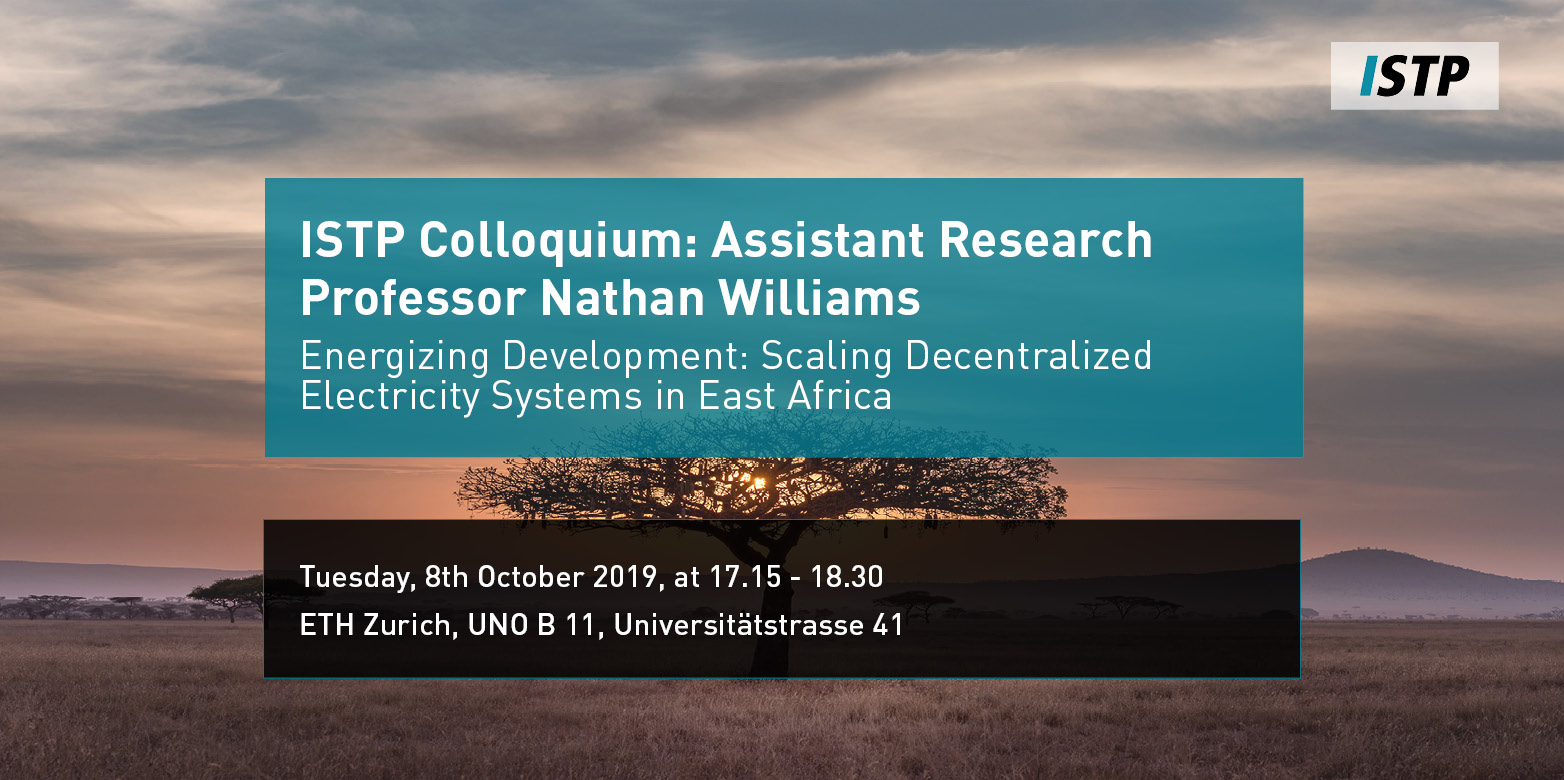Energizing Development: Scaling Decentralized Electricity Systems in East Africa
ISTP Colloquium on Tuesday, 8th October 2019 on “Energizing Development: Scaling Decentralized Electricity Systems in East Africa” by Nathan Williams, professor in the Department of Engineering and Public Policy at Carnegie Mellon University, Pittsburgh USA.

About the colloquium
In 2015, the United Nations launched the Sustainable Development Goals (SDGs), an ambitious set of targets to eliminate poverty on a global scale while at the same time ensuring peace, prosperity and the protection of the natural environment. SDG 7 calls explicitly for universal access to affordable and clean energy. Furthermore, meeting all 17 SDGs will require the expansion of global energy systems. The lack of large-scale legacy infrastructure in the Global South, alongside the development of new, cleaner decentralized energy technologies presents tremendous opportunities to build innovative, sustainable electricity systems. However, the deployment of these decentralized systems on a large scale is an untrodden path that will require the development of new technologies, business models, and policies. This talk will examine barriers to scaling up the deployment of decentralized, renewable- based micro electricity utilities in East Africa and ways that challenges can be overcome while making progress towards the sustainable development goals.
About Research Professor Nathan Williams
Nathan Williams is Special Faculty in the Department of Engineering and Public Policy at Carnegie Mellon University. His research focuses on African energy systems with a particular interest in the use of renewable and decentralized energy technologies to expand access to electricity. He is also a visiting instructor at the CMU Africa campus in Rwanda where he teaches courses on energy systems and a Research Fellow at the Kigali Collaborative Research Center.
He completed his Ph.D. in Engineering and Public Policy at CMU focusing on barriers to electrification in East Africa via privately operated microgrid utilities. His interest in energy poverty in developing countries was sparked while serving as a Peace Corps volunteer in a remote unelectrified village in the West African nation of Burkina Faso. Following his time in the Peace Corps, Nathan joined the Centre for Energy Research at the Nelson Mandela University in South Africa, where he earned a M.Sc. focusing on the application of solar photovoltaic technologies to rural electrification. Prior to coming to CMU, Nathan spent three years developing utility scale renewable energy IPPs in sub-Saharan Africa.